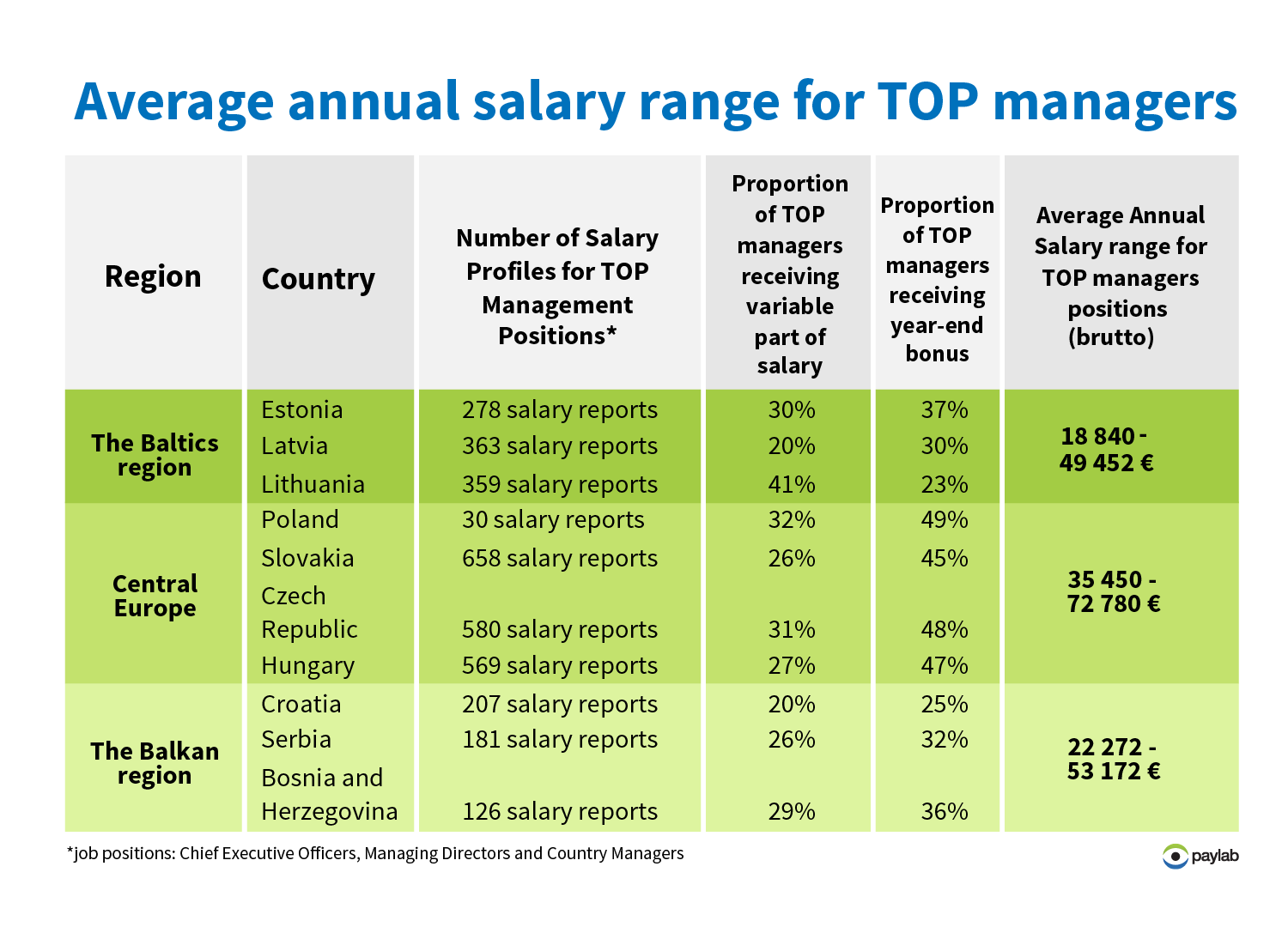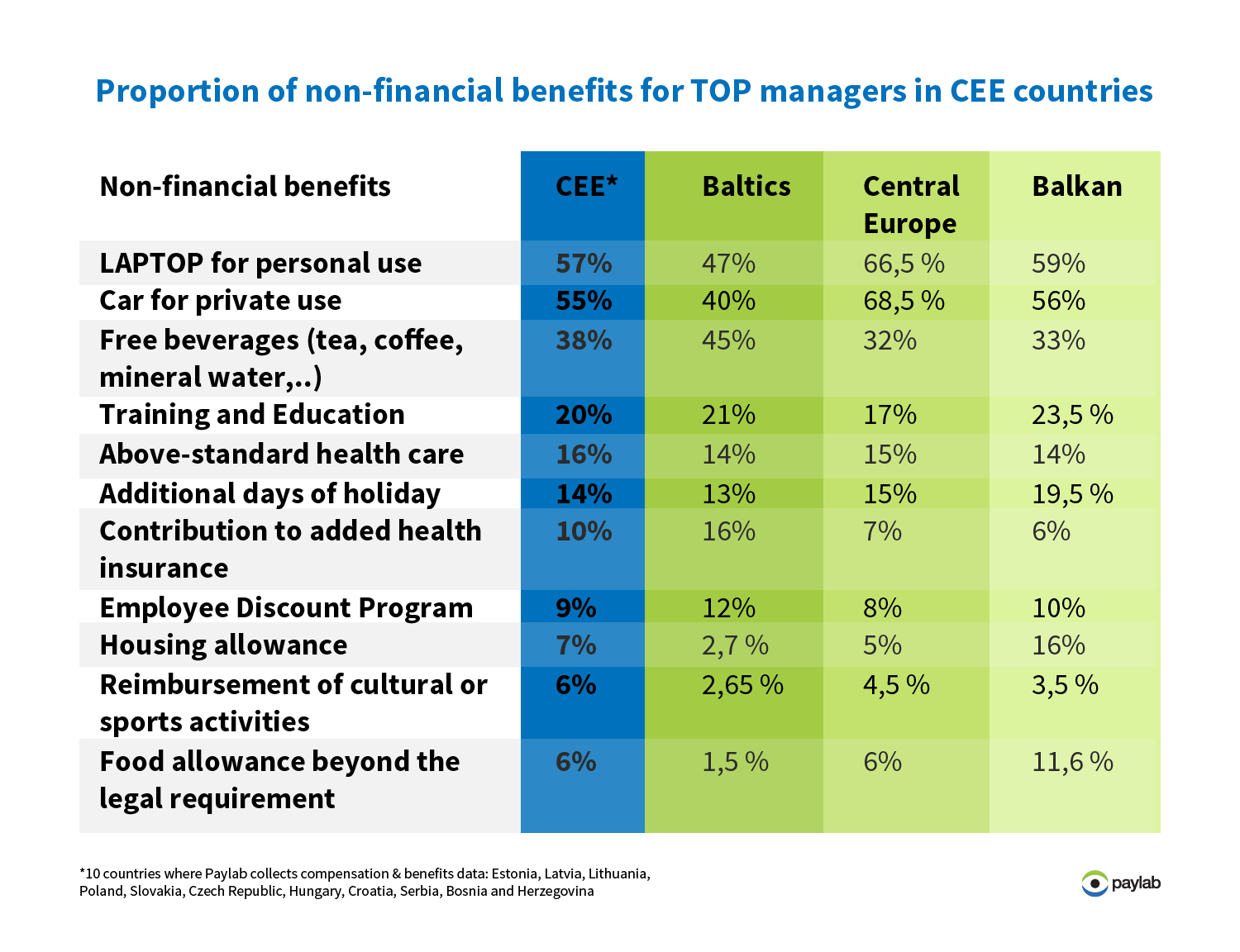What is relevant compensation and benefit package for new generation of top leaders in CEE? Expats versus locals?
International salary portal Paylab.com mapped the current trends in Compensation and Benefits and examined the ways in which the top three positions of Managing Director, Chief Executive Officer and Country Manager are compensated in Central and Eastern Europe. A total of 3,551 salary reports from top level managers in these three positions were analysed from 10 countries in the region.

The region of Central and Eastern Europe (CEE) is attractive thanks to its well-qualified workforce and investment potential, and many multinational companies have already set up an affiliated company there, with new investments being made every year. The trend in the 1990s of head offices deploying their own top managers as expats in local offices has recently been turned on its head and more and more trust is being placed in local managers whose competencies, skills, education, language skills and knowledge of the local environment are often the more optimal, and less expensive, choice for companies.
Foreign companies have maintained branches in the CEE region for many years, some for more than two decades since the fall of the Iron Curtain, and since that time, a new and progressive generation of local leaders who are competitive with foreign talent has appeared on the scene. A multitude of shared service centres and outsourcing services have found success in the region.
The hiring of local top managers means, for international companies, increasing the level of diversity in their management team and the level of engagement of local talent with respect to local connections. A new generation of competitive local managers is now growing into leadership positions. It has been fascinating to watch how interest from abroad has grown in managers from the CEE region, as many experienced local managers leave for work or are relocated to higher-wage countries. There they have the opportunity to hone their leadership skills through mentoring and by shadowing other executive leaders. International companies reap the benefits of additional diversity and the new perspectives they bring to solving challenges.


Compensation for managers is typically fixed to and conditioned by the achievement of defined objectives. Three of ten top executive management in the CEE region receive on average a variable salary component, with four of every ten receiving an annual performance bonus based on the fulfilment of economic plans. Year-end bonuses in particular tend to be very generous for top management positions, often doubling their basic monthly salary amount.

Companies also invest into non-financial benefits, with a company car and notebook computer for personal use as standard benefits offered in the region, while this benefit is offered most intensively to top managers in Central Europe. Additional holiday time, reimbursement for meals above the statutory requirements and a housing allowance are provided to a greater extent in the Balkans. More intensive investment is made in supplemental health insurance in the Baltics, with supplemental pension insurance and pension savings plans preferred in the Czech Republic and Slovakia, respectively.

Expats are more expensive for companies, especially when considering the costs associated with their relocation, travel, and insurance premiums, not to mention language and cultural barriers. They typically involve around twice the costs of a local manager. However, they do offer certain benefits in promoting the same quality standards of business operations and corporate culture in the local country, and expats often have experience and know-how from other markets, giving them the ability to look at local challenges from a distance and in an unbiased manner.

Why Training Alone Won’t Keep Employees from Leaving

Transparency, Data, and People: What We Learned at the HR Time Gathering in Zagreb

News for the User Experience Community: UX Research Academy for Everyone – Completely Free













